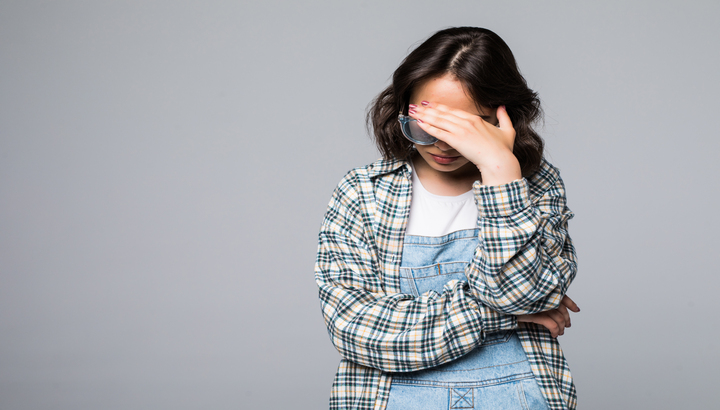
If you are wondering as to what agoraphobia means, it is a kind of anxiety disorder. If you have this anxiety disorder, you will experience fear and, hence, avoid places or situations that can make you feel helpless, trapped, or embarrassed and cause you to panic. The situation could be actual or anticipated. Besides, the situations can include using public transportation, being in enclosed or open spaces, being in a crowd, or waiting in a line or queue.
It is the fear of getting out of a place or situation or seeking help when panic strikes that causes anxiety in you. Most people who suffer from agoraphobia often develop it after experiencing a couple of panic attacks. They worry about going through another attack and hence avoid the places/situations that can trigger an anxiety attack.
Those suffering from this phobia often find it difficult to feel safe in public places, especially where there is a crowd. That’s why you may feel like taking a friend or relative with you when you go to public places.
If the fear is overwhelming, you may not even leave your home.
Symptoms
Typical symptoms of agoraphobia include the fear of:
- Crowds or standing in queues
- Leaving home alone
- Enclosed spaces (elevators, small stores, movie theatres, etc.)
- Open spaces (parking lots, malls, bridges, etc.)
- Travelling by public transport (bus, train, airplane, etc.)
The answer to your question as to how agoraphobia develops is that fear or anxiety most often results from exposure to situations or places and the panic attacks you have experienced in the past. Furthermore, your fear is much greater than the actual danger posed by the situation.
In addition to agoraphobia, some people may have panic disorders. It is also a kind of anxiety disorder. You experience attacks of extreme fear suddenly. The fear can reach a peak in a matter of a few minutes, triggering intense physical symptoms. You might feel that you don’t have any control and that you are experiencing a heart attack and might even die. Fear of experiencing another panic attack prompts you to avoid similar circumstances/places where they have happened in the past.
Panic attack symptoms include:
- Rapid heartbeat
- Trouble breathing
- Chest pressure or pain
- Lightheadedness
- Feeling jittery or numb
- Excessive sweating
- Flushing or sudden chills
- Diarrhoea or stomach upset
- A feeling that you don’t have any control over what is happening to you
- Fear of dying
Causes and Risk Factors
If you are wondering why agoraphobia happens, it is often caused as a result of a panic disorder complication. Panic disorder is an anxiety disorder that involves panic attacks as well as moments of extreme fear. It can also arise when you associate panic attacks with places/situations where they have occurred and then avoid them.
Some people suffering from agoraphobia may not have any panic attack history at all. In such cases, the fear may be caused by issues like crime, illness, terrorism, or being involved in an accident. Traumatic events like bereavement can also contribute to the development of agoraphobia. Certain genes inherited from parents may also be responsible for the development of this disorder.
Though agoraphobia usually develops in the late teens or early adulthood, it can begin in childhood as well. Usually, it starts before age 35. However, older adults may also develop agoraphobia. Women are more prone to developing this phobia than men.
Risk factors include having other phobias or panic disorders, experiencing excessive fear and avoidance during panic attacks, experiencing stressful events such as abuse, attack, the death of a parent, etc., in life, having a nervous/anxious temperament, and having a relative who has agoraphobia.
How Agoraphobia Affects Your Life
Agoraphobia can limit your activities to a great extent. Depending on the severity of your condition, you may even be stuck at home. If you are not treated, you can become housebound for several years. You may not be in a position to go to school/work, run errands, go out with family or friends, or participate in other regular daily activities and may become totally dependent on others. Agoraphobia may also lead to depression, alcohol/drug abuse, or other disorders related to mental health such as anxiety/personality disorders.
Treatment
The answer to your question, "Will agoraphobia go away?" is a big no. On the other hand, the answer to your question "Can agoraphobia be treated?" is a big yes. Treatment by experienced mental health professionals will help you manage your disorder better and carry on with life as it involves confronting your fears.
In general, treatment involves psychotherapy and medication, depending on the severity of your condition. Though it may take some time to see results, treatment helps you get better. It also helps you escape the agoraphobia trap and lead a more comfortable and enjoyable life.
At SoftMind, the best centre for agoraphobia treatment in Calicut, we have a panel of qualified and highly trained mental health professionals who are experts in cognitive behavioural therapy and clinical hypnotherapy. For the best psychotherapy and hypnotherapy treatments in Calicut, you don’t have to look beyond SoftMind.
You can easily find us through a Google search for the keywords "agoraphobia treatment near me". Mental health professionals at SoftMind have the competence, skills, and experience to help you overcome your difficulties by determining the right treatment approach.